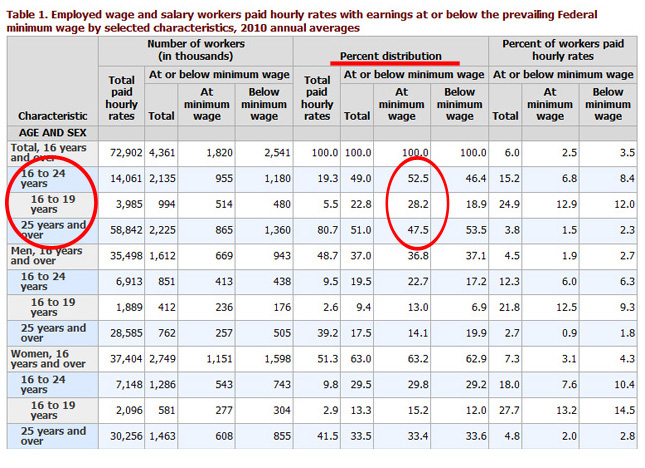 The federal minimum wage in the United States is $7.25 per hour, but 18 states and the District of Columbia have higher minimum wage rates, as they have laws which adjust the minimum wage each year to keep pace with inflation. Last week, CNN Money reported that Colorado, Montana, Ohio, Washington and Oregon have announced their increased 2012 rates, and that similar announcements are expected from Arizona, Florida and Vermont. Legislation is pending in California, Maryland, Illinois and Massachusetts to implement annual adjustments to wage rates in those states. Washington has the highest minimum wage rate in the country, which will be $9.04 in 2012.
The federal minimum wage in the United States is $7.25 per hour, but 18 states and the District of Columbia have higher minimum wage rates, as they have laws which adjust the minimum wage each year to keep pace with inflation. Last week, CNN Money reported that Colorado, Montana, Ohio, Washington and Oregon have announced their increased 2012 rates, and that similar announcements are expected from Arizona, Florida and Vermont. Legislation is pending in California, Maryland, Illinois and Massachusetts to implement annual adjustments to wage rates in those states. Washington has the highest minimum wage rate in the country, which will be $9.04 in 2012.
Still, a worker who works 40 hours a week at that rate will only earn $18,800 in a year, which is still below the Department of Health and Human Services’ poverty level for a family of four. Data from the Bureau of Labor Statistics indicate that three-quarters of minimum-wage workers are at least 20 years old and over half are 25 years and older.
The CNN Money article states:
“The minimum wage is taking on increased importance in this economic downturn because the jobs that are being created these days skew toward the lower end of the pay scale. ... An analysis from the advocacy group National Employment Law Project earlier this year showed that 76% of jobs created in the first seven months of 2010 were in low- to mid-wage industries -- those earning between $8.92 to $15 an hour, well below the national average hourly wage of $22.60.”
The following video by CNN Money explains even further the recent increase in lower-wage jobs as compared to other jobs. The commentator compares job loss and growth between three categories, those earning less than $20,221 per year, those earning over $70,000 per year, and the majority of jobs which earn amounts in between. He concludes that the jobs lost before the recession were better than the jobs which are coming back so far in the recovery, and that people with these lower paying jobs will not have the capability to provide enough stimulus to help the market recover.
This is not what we want to hear, but it may help explain why we are still not where we want to be in the slow recovery.



Add new comment